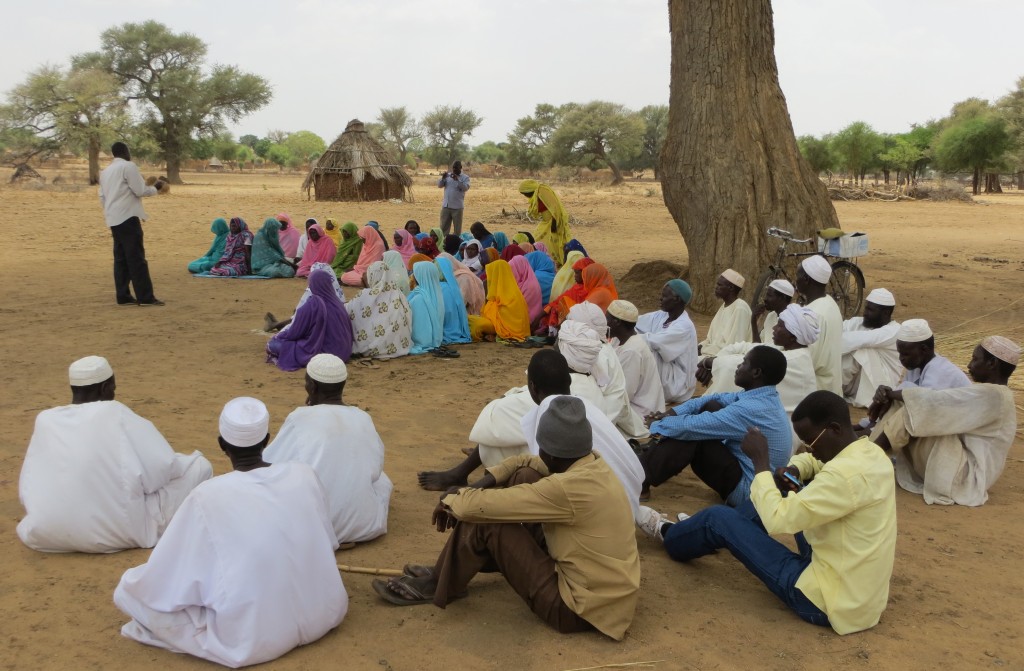Darfur, Sudan—As a newly minted paraveterinary technician, or paravet, Kharif provides basic animal health care and animal production advice to people in his communities. “Before attending the paravets’ workshop, I was leading a very difficult life because I didn’t have a real full-time job to rely on,” Kharif said. Today, 50 cattle owners—each with about 150 head—rely on Kharif to take care of their livestock’s health. “You can imagine how big my workload is,” Kharif said. “My personal financial distress has been completely relieved and now my children are doing well at school as a result of my economic stability.”
Through its Resources, Livelihoods, and Security initiative, NEF brings together communities in Central Darfur—now emerging from years of devastating conflict—to help them craft sustainable solutions for economic recovery: micro-enterprise development, agricultural production and, natural resource management. Livestock is a cornerstone of the local economy, and animal health is critical for the livelihoods of NEF’s partners.
Through the paraveterinary program, NEF partnered with the Department of Animal Wealth of Central Darfur to create a network of 25 paravets equipped to help maintain livestock health and to treat common diseases. Participants recruited from partner communities attended a 21-day course on fundamentals of animal care and a three-day business development training. The paravets operated as private entrepreneurs, operating sustainably on a fee-for service basis, which helps them recover the costs of medicines and earn an income.
Another new paravet, Hamid was not only able to increase his daily income but also now trains others to take care of animals. Many of the most common animal diseases are easily preventable with better practices and care. With his new skills, Hamid believes he has “a personal responsibility to help raise pastoralists’ awareness of best practices for animal health.”
Before he received training, paravet Abdelkarim used trial-and-error methods to treat animals. “I wasn’t very confident about what I was doing, because I lacked fundamental scientific knowledge and skills. After the training, I feel far more self-confident. I know what I am doing and I can see the positive results of treatments.” Abdelkarim also opened a small store selling veterinary medicine. This is important in this area, because pastoralists lack immediate access to drugs for their livestock.
Since its launch in 2013, the Resources, Livelihoods, and Security initiative has impacted the lives of thousands of people, many of whom have had a history of conflict with each other. Along with the 2,330 people who took part in business-training workshops, 460 people gained access to clean water from 23 water pumps installed in 13 villages, and 7,000 farm families acquired certified seed and tools through NEF-organized agricultural fairs.
NEF’s Resources, Livelihoods, and Security initiative has received support from USAID’s Office of Foreign Disaster Assistance, AECOM, and United Nations–African Union Mission in Darfur (UNAMID).



